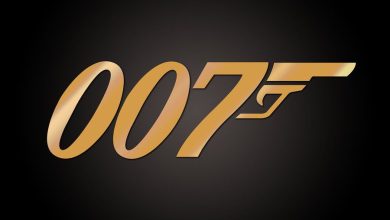
Roger Moore’s portrayal of James Bond captivated audiences worldwide, making him an adored and iconic figure in the franchise. However, despite his immense popularity, Moore made the surprising decision to step away from the role. In this article, we delve into the intriguing question of why Roger Moore, beloved as James Bond, chose to quit and explore the various factors that influenced his departure. From the demanding nature of the role to creative differences and a desire for new challenges, we uncover the untold story behind Moore’s decision and its impact on the James Bond franchise.
Key Takeaways
- Roger Moore’s departure from the role of James Bond was influenced by a combination of factors, including the demanding nature of the role, his age, a desire for new challenges, creative differences, and burnout.
- The legacy of Roger Moore’s portrayal of James Bond remains significant, as he became the longest-serving Bond actor and left an indelible mark on the franchise’s history.
- Moore’s departure opened the door for new actors to bring their own interpretations to the character, leading to the evolution and continued success of the James Bond franchise.
Roger Moore’s Journey as James Bond
As the longest-serving James Bond actor, Roger Moore left an indelible mark on the franchise. He assumed the iconic role in 1973, debuting in “Live and Let Die.” Moore’s portrayal introduced a different interpretation of Bond, characterized by a more lighthearted and humorous approach compared to his predecessors. His seven-film run, including classics like “The Spy Who Loved Me” and “Moonraker,” solidified his place as one of the most beloved Bond actors.
The Tiring Demands of the Role
One significant factor that led to Moore’s departure was the demanding nature of the James Bond role. Playing the debonair secret agent involved intense physical training, rigorous action sequences, and long shooting schedules. By the time Moore decided to step down, he had played Bond for over a decade, and the physical toll was becoming increasingly challenging to endure. The demanding lifestyle required to maintain the character’s image and the grueling shooting schedule ultimately took its toll on Moore’s well-being.
Age and a Desire for New Challenges
Another critical aspect contributing to Moore’s decision was his age. When he took on the role, he was already the oldest actor to portray James Bond, and as time passed, the physical demands became more arduous. Moore believed it was time to explore other acting opportunities and take on new challenges outside the confines of the Bond franchise. He expressed a desire to avoid being typecast and to showcase his versatility as an actor.
Evolution of the James Bond Franchise
During Roger Moore’s tenure, the James Bond franchise underwent significant changes. The 1970s and 1980s saw a shift towards a more light-hearted and fantastical tone, aligning with Moore’s portrayal of the character. However, as the 1990s approached, the series began to undergo a transformation. The producers aimed for a grittier and more realistic Bond, paving the way for the portrayal by Pierce Brosnan and later Daniel Craig.
Creative Differences and Burnout
Creative differences can often arise in long-running franchises, and the Bond series was no exception. Moore’s departure was also influenced by the evolving vision of the producers and the creative team behind the films. After several successful films, Moore felt that the franchise was becoming repetitive, and he wanted to explore new directions. Additionally, the relentless pressure of maintaining the Bond image and the immense public scrutiny can lead to burnout for any actor, no matter how talented or beloved.
Legacy and Life After Bond
Despite his decision to leave the role, Roger Moore’s legacy as James Bond remains unparalleled. He contributed significantly to the longevity and success of the franchise, leaving an indelible mark on the character’s evolution. After his departure, Moore continued to pursue acting in various projects, including television series and films. He also dedicated himself to philanthropy, becoming a UNICEF Goodwill Ambassador and working tirelessly for humanitarian causes until his passing in 2017.
FAQ: Roger Moore’s Departure from James Bond
- Why did Roger Moore decide to quit playing James Bond?
Roger Moore’s decision to leave the role of James Bond was influenced by several factors. Firstly, the demanding nature of the role took a toll on him physically. The rigorous action sequences, extensive training, and long shooting schedules became increasingly challenging to endure over his decade-long tenure. Moore felt that the demanding lifestyle required to maintain the character’s image was taking a toll on his well-being. Additionally, as the oldest actor to portray Bond, Moore recognized that his age made it even more challenging to meet the physical demands of the role. He believed it was time to explore new acting opportunities and take on fresh challenges outside the confines of the Bond franchise.
- Did Roger Moore leave because he was tired of playing James Bond?
While fatigue may have played a part in his decision, it would be unfair to suggest that Moore was simply tired of playing James Bond. He embraced the role with enthusiasm and portrayed the character with charm and charisma, which resonated with audiences worldwide. However, after portraying Bond for over a decade, Moore desired to avoid being typecast and wanted to showcase his versatility as an actor. The James Bond role had defined much of his career, and he felt it was time to move on to explore other acting opportunities and challenge himself in different roles.
- Was creative differences a factor in Roger Moore’s departure?
Yes, creative differences did play a role in Roger Moore’s decision to leave the James Bond franchise. After several successful films, Moore felt that the franchise was becoming repetitive and wanted to see the character and storylines evolve. The creative team behind the films also had their own vision for the future of Bond, which may have differed from Moore’s expectations. As an actor, Moore desired fresh and exciting narratives, and when those expectations clashed with the direction of the franchise, it influenced his decision to step away from the role.
- Did Roger Moore’s departure affect the James Bond franchise?
Roger Moore’s departure undeniably marked a significant change for the James Bond franchise. As the longest-serving Bond actor at the time, Moore had become synonymous with the character. His departure signaled the end of an era and left big shoes to fill for the next actor to take on the role. However, the franchise has always been resilient and adaptable, and it successfully moved forward with new actors, bringing their own interpretations to the iconic character. Moore’s contribution remains cherished, and his portrayal of Bond continues to be celebrated as an essential part of the franchise’s history.
- Did Roger Moore continue acting after leaving James Bond?
Yes, Roger Moore continued his acting career after leaving the role of James Bond. While Bond had defined much of his career, Moore sought to showcase his versatility as an actor and took on various projects in both television and film. He starred in TV series like “The Saint” and “The Persuaders!” and appeared in movies such as “The Wild Geese” and “The Cannonball Run.” Moore’s departure from Bond allowed him to explore different genres and characters, further demonstrating his talent and range as an actor.
- Did Roger Moore regret leaving the role of James Bond?
While it is impossible to know the intricacies of Roger Moore’s personal feelings, there is no evidence to suggest that he regretted leaving the role of James Bond. Moore had expressed his desire to avoid being typecast and to pursue new challenges. After his departure, he actively pursued other acting opportunities and engaged in philanthropic endeavors as a UNICEF Goodwill Ambassador. Moore’s successful career beyond Bond and his dedication to humanitarian causes indicate that he embraced his decision and found fulfillment in his post-Bond endeavors.
- How did Roger Moore’s departure impact the legacy of James Bond?
Roger Moore’s departure from the role of James Bond marked the end of his significant contribution to the franchise’s legacy. His portrayal brought a lighthearted and humorous charm to the character, resonating with audiences around the world. Moore’s films, such as “The Spy Who Loved Me” and “Moonraker,” became beloved classics. While subsequent actors brought their own interpretations to the role, Moore’s legacy remains integral to the evolution of James Bond. His departure opened the door for new actors to leave their own mark on the character and continue the franchise’s enduring legacy.
- Did Roger Moore’s departure influence the direction of the James Bond franchise?
Yes, Roger Moore’s departure did influence the direction of the James Bond franchise. After Moore’s tenure, the series underwent further transformations, with producers and creative teams aiming for a grittier and more realistic portrayal of Bond. This shift in tone and style paved the way for actors like Pierce Brosnan and Daniel Craig, who brought their own interpretations to the character. Moore’s departure signaled a desire for change and allowed the franchise to adapt and explore new directions, ensuring its continued relevance and appeal to audiences.
- How did fans react to Roger Moore leaving the role of James Bond?
Fans had mixed reactions to Roger Moore’s departure from the role of James Bond. Moore had developed a loyal fan base during his tenure, and his portrayal had become synonymous with the character for many. Some fans were saddened by his departure, feeling that he had brought a unique charm to the role that would be missed. However, others embraced the opportunity for new actors to bring fresh perspectives to Bond, acknowledging that change is an inherent part of the franchise’s history. Overall, the reaction from fans reflected the diversity of opinions within the Bond community.
- Who succeeded Roger Moore as James Bond after his departure?
After Roger Moore, the role of James Bond was succeeded by Timothy Dalton, who starred in two Bond films, “The Living Daylights” and “Licence to Kill.” Dalton’s portrayal brought a more serious and gritty tone to the character, departing from the lightheartedness associated with Moore’s interpretation. Dalton’s tenure set the stage for further reinventions of Bond by subsequent actors like Pierce Brosnan and Daniel Craig, ensuring the franchise’s continued evolution and longevity. Each actor’s contribution adds a unique layer to the rich tapestry of the James Bond legacy.
Conclusion
Roger Moore’s decision to leave the role of James Bond marked the end of an era and left fans curious about the reasons behind his departure. From physical demands and age considerations to creative differences and a desire for new opportunities, multiple factors contributed to Moore’s choice. Despite his departure, Moore’s legacy as James Bond remains cherished, and his portrayal continues to be celebrated as a vital part of the franchise’s history. The James Bond franchise has proved resilient, adapting to new actors and directions while maintaining its enduring appeal. Moore’s departure served as a catalyst for change, allowing the franchise to evolve and captivate audiences for generations to come.








